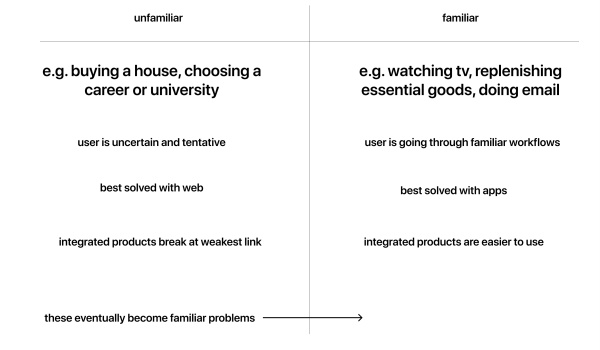You are losing easy publishing, consuming and remixing
Where? Right here on the web, of course.
I often write about the importance of net neutrality, [open standards](/tag/open standards), and permanent web presence. This is why I want to spread an interesting definition of what the open web is, and how it is dying, that I found in the blog of the Insight mobile browser.
Three concrete characteristics of the Open web
- Ease of publishing: anyone can publish to it freely or at least very cheaply, and is on the same footing with a globally accessible URL (that is, not through that bad idea that is Google’s AMP
- Ease of consuming: Net neutrality - ISP’s dont cut deals with corporations to make some websites load faster or cheaper than others.
- Ease of remixing. You can see the source code. Content licenses and tools are permissive for derived works.
This says the Insight team. Personally, I’d add an explicit mention of the fact that publishing, consuming and remixing are three very different activities, that touch very different spheres of law, and consequently require different, sometimes unrelated solutions. But I like that way to present the issue.
To further understand what the open web makes possible, Insight adds the distinction between familiar and unfamiliar problems:

Unfamiliar problems
These are the problems that require or discovering something new, or to purchase goods or services to solve them. The problems, that is, that in this digital era usually involve starting from a search engines, and then spending a lot of time to read or watch web pages.
Familiar problems
Familiar problems are those whose solution we already knew before going online, or previously unfamiliar problems, solved as in the previous paragraph: being entertained, reordering a new batch of goods from the same places we bought it last time, communicating with someone… Familiar problems are those that, these days, “are best solved with apps like Email, Netflix, Twitter, DTC subscription boxes, etc”
Why this distinction matters
All this is important because:
- familiar problems can be solved more effectively (forgetting for a moment their other problems) with closed apps. Insight cites Spotify as an example
- BUT: while we may spend most of our time on familiar problems, we always have “a constant trickle of unfamiliar problems”. That’s just life!
- “Unfamiliar problems have less constraints, require creativity to solve, and thus are better suited to open solutions". Because, even when they are quick to solve, unfamiliar problems very often imply “traversing a dozen services and products” to find a good solution
Familiar problems can benefit from the tight integration implied in being apps, instead of websites. But an open web helps to to break monopolies over familiar problems.
In any case, this whole model of easy publishing, consuming and remixing is now under very heavy attack by practices like paywalls, or Google extracting answers from pages and showing them on their search result pages. This is what removes many (luckily not all, just look at me!) incentives to freely create knowledge that solves unfamiliar problems.
That’s a useful way to present the problem, isn’t it? To read Insight’s conclusions, and where they think they fit in, continue here.
Who writes this, why, and how to help
I am Marco Fioretti, tech writer and aspiring polymath doing human-digital research and popularization.
I do it because YOUR civil rights and the quality of YOUR life depend every year more on how software is used AROUND you.
To this end, I have already shared more than a million words on this blog, without any paywall or user tracking, and am sharing the next million through a newsletter, also without any paywall.
The more direct support I get, the more I can continue to inform for free parents, teachers, decision makers, and everybody else who should know more stuff like this. You can support me with paid subscriptions to my newsletter, donations via PayPal (mfioretti@nexaima.net) or LiberaPay, or in any of the other ways listed here.THANKS for your support!